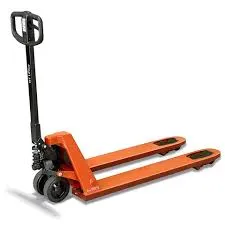


The Price of 20 Ton Chain Blocks An Overview
Chain blocks, also known as chain hoists or manual hoists, are essential tools in various industries for lifting heavy loads. Among the different capacities available, the 20-ton chain block is a popular choice due to its ability to handle substantial weights while remaining relatively portable and easy to use. Understanding the pricing of 20-ton chain blocks is crucial for businesses and individuals looking to invest in lifting equipment.
Factors Affecting the Price of 20 Ton Chain Blocks
1. Material Quality The quality of materials used in the construction of chain blocks significantly influences their pricing. Higher-grade steel components are generally more durable and can withstand heavy use over time. Blocks made from high-quality materials may come at a higher initial cost but often provide better value in the long run due to their longevity.
2. Brand Reputation Brand reputation plays a pivotal role in determining the price of lifting equipment. Reputable manufacturers who have established a track record for safety, reliability, and performance often command higher prices for their products. Investing in a well-known brand can provide peace of mind, knowing that the chain block adheres to safety standards and regulations.
3. Load Capacity and Features While the 20-ton capacity is a defining feature, additional functionalities, such as multiple rigging options, built-in safety mechanisms, and ergonomic designs, can influence the cost. Chain blocks with advanced features that enhance user safety and efficiency will typically be priced higher.
4. Market Demand and Supply The general laws of supply and demand also affect the pricing of chain blocks. Fluctuations in demand due to seasonal projects or economic conditions can lead to variability in pricing. For example, during peak construction seasons, the demand for heavy lifting equipment might increase, leading to higher prices.

5. Import Duties and Shipping Costs If a company imports chain blocks from manufacturers in other countries, import duties and shipping costs will be factored into the final price. As global trade conditions and tariffs change, it can affect the overall cost of equipment, including chain blocks.
Price Range and Where to Buy
The price for a 20-ton chain block can vary widely based on the factors mentioned above, but on average, you might expect to pay anywhere from $300 to $1,500. Basic models can be found at the lower end of the price spectrum, while high-end options with advanced features and better safety ratings may approach the higher end.
Potential buyers can source 20-ton chain blocks from various places, including online retailers, specialized lifting equipment suppliers, and local hardware stores. Purchasing online can often yield competitive prices and a broader selection, but it is essential to consider shipping costs and delivery times. For those who prefer to see the product before purchasing, local suppliers may offer the advantage of immediate availability and the opportunity to consult with knowledgeable staff.
Conclusion
Investing in a 20-ton chain block is a significant decision for many businesses and individuals involved in heavy lifting activities. Understanding the factors that influence pricing will help buyers make informed choices. Whether you prioritize brand, quality, features, or cost, researching and comparing options can ensure that you find the right chain block to meet your needs. Ultimately, the right chain block will enhance operational efficiency and contribute to a safer working environment.



